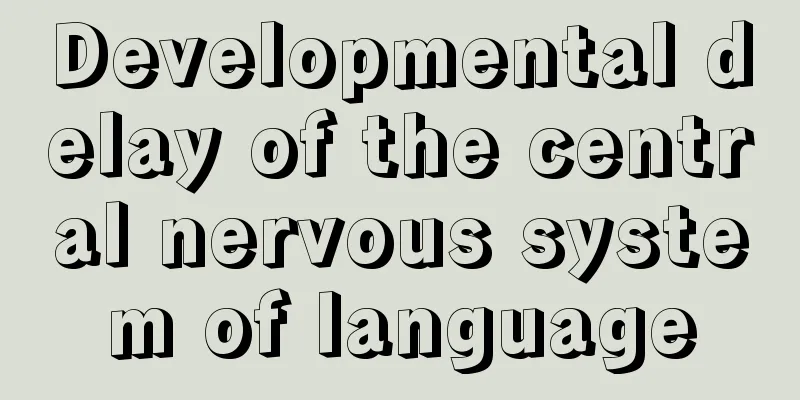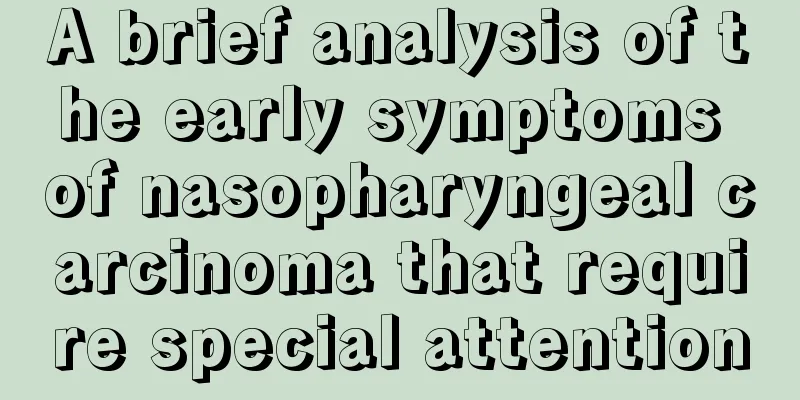Developmental delay of the central nervous system of language

|
Children's language development is developed through what they see and hear in daily life. As children grow up, their language skills will continue to develop. The degree of maturity of this ability varies from person to person. Parents sometimes find that their children have slow language development, and compared to other children, they may not be able to speak at an older age. So what caused this? Language delay refers to a condition in which a child's oral expression ability or language comprehension ability lags significantly behind the normal development level of children of the same age due to various reasons. Factors such as mental retardation, hearing impairment, articulation organ diseases, central nervous system diseases, and poor language environment are all common causes of delayed language development in children. If a child is found to have delayed language development, efforts should be made to find the cause. If a child has a significant delay in language development without any of the above clear reasons, it is called idiopathic language development disorder or developmental language delay. Causes Factors such as mental retardation, hearing impairment, articulation organ diseases, central nervous system diseases, and poor language environment are all common causes of delayed language development in children. Clinical manifestations Idiopathic language development disorders are clinically divided into two types: expressive language disorders and receptive language disorders. The former can understand language but cannot express it, while the latter has limited understanding and expression of language. When the child begins to learn to speak, language defects will be revealed. The child can make some syllables but cannot form words. He cannot remember common words, his vocabulary is very poor, and he cannot use complete sentences to describe what he needs, so his sentences are very difficult to understand. Children with this disease learn language very slowly, often 2 to 3 times slower than normal children, and their language skills are obviously delayed. For example, they may not be able to call dad or mom at the age of one, and may not be able to speak complete sentences at the age of four. Children with idiopathic language development disorder may not have obvious psychological and emotional abnormalities in the preschool stage, and remain lively and happy. After going to school, due to difficulties in language communication, children often have behavioral problems such as anxiety, depression, withdrawal, and disobedience. These children often have learning difficulties, mainly difficulties in reading, comprehension and calculation. Since these children have normal inner language development, they can participate in some creative games and draw. Have certain interpersonal skills, such as using facial expressions and actions to express one's needs. He can show attachment to his mother and play with other children. When the children were given intelligence tests, the verbal part was poor, but the operational part was normal, showing a dissociation between verbal IQ and operational IQ. diagnosis Children with receptive language disorders have poor comprehension and expression of oral language. The child is unable to understand simple instructions and cannot point to or get an object in response to verbal instructions. Children with this disease can hear sounds but do not understand language, and will respond to gestures and facial expressions. Although the hearing test showed mild hearing loss, it was extremely disproportionate to the lack of response to language seen clinically. The hearing curve of electrical audiometry is often very unstable and fluctuates greatly. treat Mainly provide special training on language. People with expressive language disorders have a good prognosis. Language skills can be acquired gradually with age without treatment, but early intervention is still necessary. The focus of language training is to imitate other people's speech, and it is best for parents to participate in the training as well. For patients with receptive language disorders, the focus is on training children's abilities in language comprehension, auditory memory, and auditory perception. After specialized training, language ability can be restored to varying degrees, but the prognosis is still poor. For those with psychological and behavioral disorders, behavioral therapy should be used for correction, accompanied by supportive psychotherapy. There is no specific treatment drug, but people with attention disorders can be given central nervous system stimulants to improve their attention. |
<<: Stomach ache, black and loose stools
Recommend
Which lens is better for cataract surgery
During cataract surgery, the lens actually needs ...
What are the dangers of testicular cancer? What are the common symptoms of testicular cancer?
Testicular cancer can cause dull pain in the scro...
What medicine should I take for back pain
Back pain is a very common problem in life, and i...
What are the symptoms of primary liver cancer in the middle and late stages? Several symptoms of primary liver cancer in the middle and late stages
The early symptoms of primary liver cancer are di...
What side effects may Saizhi cause
Thyroid disease is also a high incidence in our l...
What are the hazards of bleaching powder?
Bleach is a very common thing in daily life. Blea...
What is the effect of drinking yeast powder
In fact, many of our friends are malnourished in ...
Experts explain that drinking more water can prevent bladder cancer
When it comes to the methods of preventing bladde...
How to distinguish single eyelids in newborns
For children, it is impossible to tell whether th...
The efficacy of Gardenia jasminoides
As a herb, Gardenia jasminoides can be used to ma...
What to do if your hands are burned by hot peppers
In daily life, we often cook some dishes with chi...
Blood in the stool is a particularly common early symptom of colon cancer
Experts say that colorectal cancer is a disease w...
Can exercise cure uterine cancer?
Cancer is scary, and no one wants to be involved ...
What's the matter with panic?
When the problem of palpitations occurs, if we wa...
What are the symptoms of blocked liver meridian
According to traditional Chinese medicine, if the...









